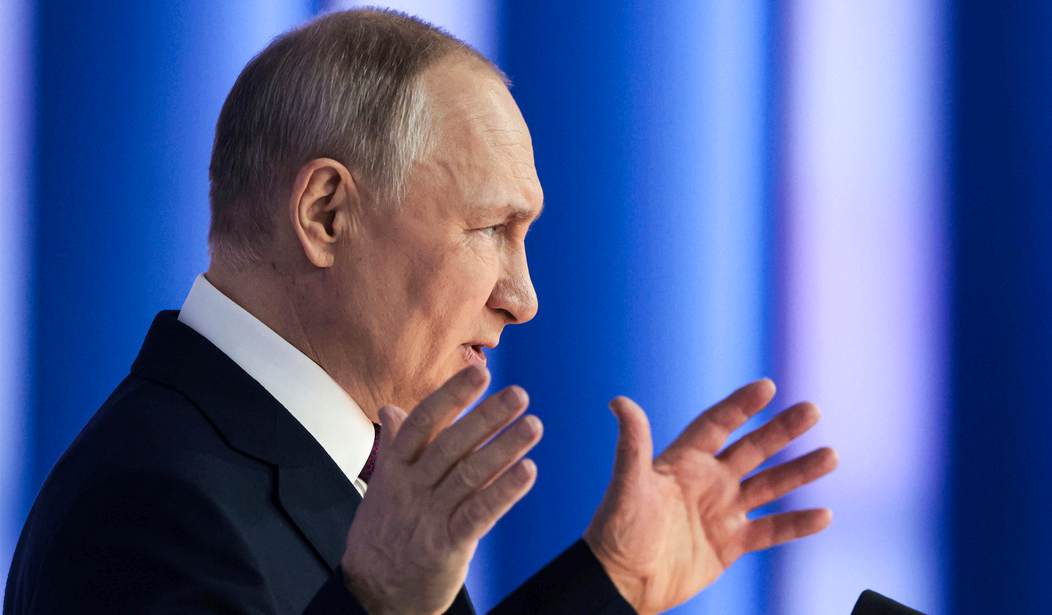The capacity of a modern economy to produce food and goods for its citizens, and weapons and fuel for its military to project power, are the undeniable twin pillars of global power. Both depend on reasonably priced and readily available energy.
Almost 80% of America’s energy is supplied by oil, gas and coal. Only 20% comes from other sources such as hydropower, nuclear, wind and solar. Even the greenest of economies will need fossil fuel backup when the wind doesn’t blow and the sun doesn’t shine. Wind and solar provide 5% of our total consumption and only 2% of the energy to power some 290 million vehicles. In other words, Americans literally run and fight on fossil fuels.
Russia, despite an economy smaller than Italy’s, has shown it could defy all international norms and invade a neighboring country because it has abundant energy.
Weapons, and more weapons. First it was Javelins, then Howitzers, then HIMARS, then anti-missile and drone capability, then longer range ATACMS, then better tanks, now F-16s. Who can tell what the next weapon will be needed to defend against Russian aggression?
Russia has its weapons, too, and they are being paid for by the sale of oil, gas, coal, and fossil fuel-derived products like petrochemicals, fertilizers, etc. Russian missiles, planes, drones, tanks and artillery that shed Ukrainian blood and destroy homes, hospitals and electric-power stations are bought with Russia’s fossil fuel revenues.
Energy is Russia’s greatest weapon as it makes possible all the others. Only with such revenues can Russia continue its devastation of Ukraine. A new Russian offensive is brewing, and it too will be financed by its energy revenues. Russians from Putin on down are talking about a much longer war because they have the revenues to support one and they don’t have to worry about a citizen-taxpayer revolt or getting reelected.
Recommended
While the U.S. and Europe have restricted their purchases and consumption of Russian energy, it is sold elsewhere. That energy sells at a discount, but Russia is still earning hundreds of billions of dollars from energy sales and thus able to continue its war for as long as Putin wants. In spite of sanctions, Russia sold over $350 worth of fossil fuels in 2022. In the meantime, Germany keeps its fracking ban.
To achieve peace in Europe and avoid potential wars elsewhere, one would think that America and the West would be increasing their own supply of oil, gas and coal and driving down prices on the global market. Such an initiative would also give fence-sitting countries like India and Brazil in the “Global South” alternative sources to substitute for Russian products.
One would also think that the West would understand that its ability to replenish weapons and ammunition being sent to Ukraine and resist aggression, anywhere, like Taiwan for example, is based on production, shipment and fueling with fossil fuels and decidedly not on wind and solar. There will never be an electric tank!
And why not drive down the price that Russia receives for its energy while providing the economic and military security derived from fossil fuels? The answer from Europe and now America has been an emphatic “no”. Apparently, addressing the “climate crisis” takes priority over national defense, stopping Russian aggression in Europe, and securing reliable, affordable energy to run modern industrial economies.
The alternative - simultaneously furthering the technology of renewables like wind and solar while building up fossil fuels within an “all of the above” approach is anathema to those who believe religiously that climate change is an existential threat. Ironically, the same people are happy to substitute U.S. fossil fuels with oil from dictatorships like Venezuela, Iran and Saudi Arabia. They don’t seem concerned that wind, solar and battery supply chains run mostly through Communist China.
An “all of the above” energy strategy would make it harder for Russia to finance its war, save Ukrainian lives and mitigate their suffering. It would show that America was willing to challenge Russia’s energy dominance now and into the future.
Sadly, the very opposite is happening. The U.S. is killing energy transport pipelines, curtailing permitting of refineries and natural gas export facilities, suppressing oil and gas leases and worst of all, stifling longer-term investment in the industry. Driven by an all-encompassing determination to limit CO2 emissions, Europe, and now America, have declared war of fossil fuels. Meanwhile, Russia and China burn oil, gas and coal and emit greenhouse gasses at levels that dwarf the West’s.
Governments in Europe and now in America have utterly failed to see that by suppressing fossil fuels, they are ceding enormous power to countries like Russia, and Iran, China who use those very fossil fuels as a way to strengthen themselves and threaten others.
Energy has been weaponized and the West is in full energy-disarmament mode. The West is forfeiting its ability to gain peace through strength with energy being the all-encompassing weapon in national and alliance arsenals.
The Russian people have experienced far greater suffering when total war was being waged on their own territory and millions perished. This time, the Russian people don’t feel the brunt of the war so the pressure to end it is limited and Russia’s vast fossil fuel revenues are available to continue it, perhaps for years.
It is doubtful that that support for Ukraine from potentially fickle Western democracies could last that long.
National economies and nations’ militaries still run on fossil fuels. There is no substitute for fossil fuel dominance, even on a longer-term horizon. To believe and act otherwise is suicidal. It’s the real “existential threat”.
Don Ritter holds a Science Doctorate from MIT, was a National Academy of Sciences Fellow in the USSR and speaks fluent Russian, served fourteen years on the House of Representatives’ Energy and Commerce and Science and Technology Committees, served as Ranking Member on the Congressional Helsinki Commission, was the founding Co-Chair of the Baltic States-Ukraine Caucus, and created and led the National Environmental Policy Institute after leaving Congress. He is a founder and President & CEO Emeritus of the Afghan American Chamber of Commerce and a Trustee of the Victims of Communism Memorial Foundation (VOC) where he Co-Chairs the Museum Capital Campaign.

























Join the conversation as a VIP Member